BOONE, N.C. — History is often recorded physically — in writings or with artifacts, for example — yet much can be learned through the old-fashioned tradition of storytelling, according to App State oral historian and associate professor Mark Coltrain.
“Ordinary people witness extraordinary things,” said Coltrain, adding that it’s these people’s verbal accounts that help fill the gaps of history. “Oral history rounds out a picture of the past in a way that is much more rich and nuanced. It’s a type of history you don’t find in textbooks or get from news articles.”
As head of App State’s Oral History Program, and as interim coordinator in App State’s Special Collections Research Center, Coltrain is surrounded by physical history in his day-to-day job, with stacks of books, photographs, videos and countless other mediums to sort through — but it’s the art of conversations captured by audio that is especially intriguing to him.
“We already have a long university history on record, but a lot of voices have been excluded or minimized from that history over the years,” he said. “Those are the stories that I’m really interested in documenting, and oral history interviews are the best way to do that.”
Coltrain also tries to identify and prioritize people who may be nearing the end of their life, whether that’s due to old age, health issues or other reasons. In 2023, he was able to interview Dr. Rennie Brantz — longtime App State professor and former Boone mayor, who died on Oct. 9, 2023.
“I was really fortunate to be able to spend some time with him,” said Coltrain. “He was really special to the university and to the town of Boone.”
On the flipside, Coltrain said it’s just as important to interview current students, whose youthfulness often gets overlooked as an important part of history.
“To document students’ memories in the present moment is very important,” he said. “It’s one thing to interview you about your life and your time here 20 years ago, but memories will fade, so why not get the story while it’s fresh on your mind?”
Coltrain noted that, in some cases, few written historical records exist for a population, citing the local Junaluska community in Boone — one of the oldest African American communities in Western North Carolina — as a prime example of the importance of storytelling.
“Most of Junaluska’s history has been passed down by elders from generation to generation,” he said. “Were it not for oral history interviews that have been conducted, we wouldn’t have a record of the community, other than people’s memories.”
Aside from conducting interviews, Coltrain also works with App State faculty, staff and students and the community to support them with their own oral history projects, many of which are donated to Special Collections to be archived. Currently, more than 2,000 oral histories are housed in the archives.
App State alumnus Jesse Barber ’22 ’24, who completed his master’s degree in Appalachian studies this spring, worked with Special Collections and collaborated with Coltrain on oral history projects when he was a student.
“Oral history is incredibly important. It’s trying to make sense of what it was like to live and exist in a place in the past, and to understand how much things have changed,” said Barber. “Those in the past who had the foresight to record these voices are the reason that we can better understand our ever-changing world. Oral history is just as vital today, so that we can continue to preserve our voices and our history for the future.”
‘Experience the thrill of discovery’ in App State Special Collections
App State’s Special Collections Research Center has much more to offer, beyond its Oral History Program. The center is home to the W.L. Eury Appalachian Collection, Stock Car Racing Collection, Rhinehart Rare Book Collection on British History and more. There are also several Digital Collections, including digitized App State manuscripts, photographs and issues of The Appalachian student newspaper.
“The richness of our collections provides a premiere research experience for anyone studying the history of the area and the region,” said Greta Browning, associate professor and interim university archivist. “Engaging with these sources promotes critical thinking skills, sparks new conclusions and allows us to experience the thrill of discovery.”
Browning said that while the App State Community is the primary audience for the collections, anyone is welcome to explore them anytime. She noted that the center has become a valuable resource not only for students, faculty and staff, but also for regional, national and international researchers.
“We regularly field questions from scholars, documentary filmmakers, genealogists and family historians, as well as other cultural institutions,” said Browning.
Coltrain added that the Special Collections team has made it a goal to put more emphasis on community outreach and to create exhibits the broader public can enjoy. One recent example is the MerleFest Archives Collection, which preserves more than 30 years of music, moments and memories from the annual festival that is held on the campus of Wilkes Community College in Wilkesboro.
“Wilkes Community College donated basically everything they had,” said Coltrain. “We have audio, video, photographs and a lot of analog materials from the older years. It’s really fun for anyone who wants to learn about MerleFest to come and dive into these archives.”
The MerleFest Archives includes an exhibit where guests can watch and listen to performances from past festivals, and Coltrain’s oral history interviews with festival artists are added to the collection each year.
Also currently on display — both physically and digitally — is the exhibit “125 Years in Retrospect: A Brief Survey of the History of Appalachian State University.” The exhibit commemorates App State’s 125th anniversary with a historical timeline that includes a vast collection of photos, documents, news headlines and more. The display covers significant moments in the university’s history, from when it was founded in 1899 to the present day.
App State’s Special Collections Research Center is located on the fourth floor of Belk Library and Information Commons on the university’s Boone campus. All exhibits are free and open to the public, with many exhibits available online. Archives, manuscripts and rare book collections are available by appointment only. Anyone can donate items to be added to collections, which are accepted on a case-by-case basis.
For more information, visit collections.library.appstate.edu.
What do you think?
Share your feedback on this story.
About University Libraries
University Libraries at Appalachian State University serves the students, faculty and staff of App State’s Boone and Hickory campuses, contributing to the university’s mission of learning, teaching, advancing knowledge, engagement and effectiveness. Belk Library and Information Commons, the Erneston Music Library and the Hickory Library and Information Commons provide academic resources for all App State students and faculty. Within Belk Library, students and faculty find group and quiet study spaces, digital devices to check out, the Digital Media Studio, the Makerspace, the Virtual Realty Studio, the Special Collections Research Center and more. Learn more at https://library.appstate.edu.
About Appalachian State University
As a premier public institution, Appalachian State University prepares students to lead purposeful lives. App State is one of 17 campuses in the University of North Carolina System, with a national reputation for innovative teaching and opening access to a high-quality, cost-effective education. The university enrolls more than 21,000 students, has a low student-to-faculty ratio and offers more than 150 undergraduate and 80 graduate majors at its Boone and Hickory campuses and through App State Online. Learn more at https://www.appstate.edu.
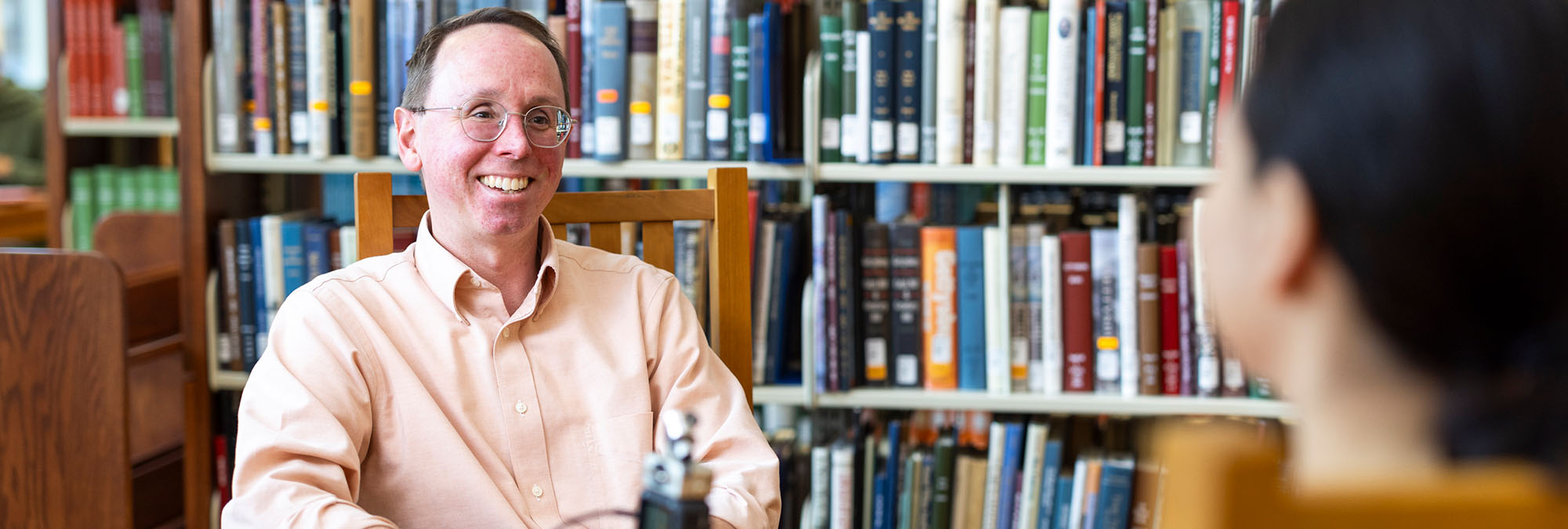
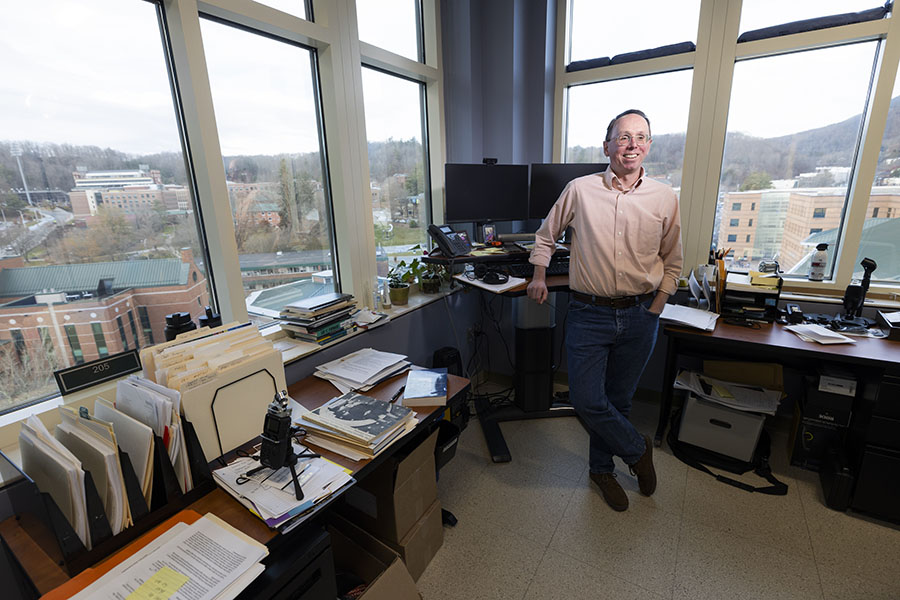
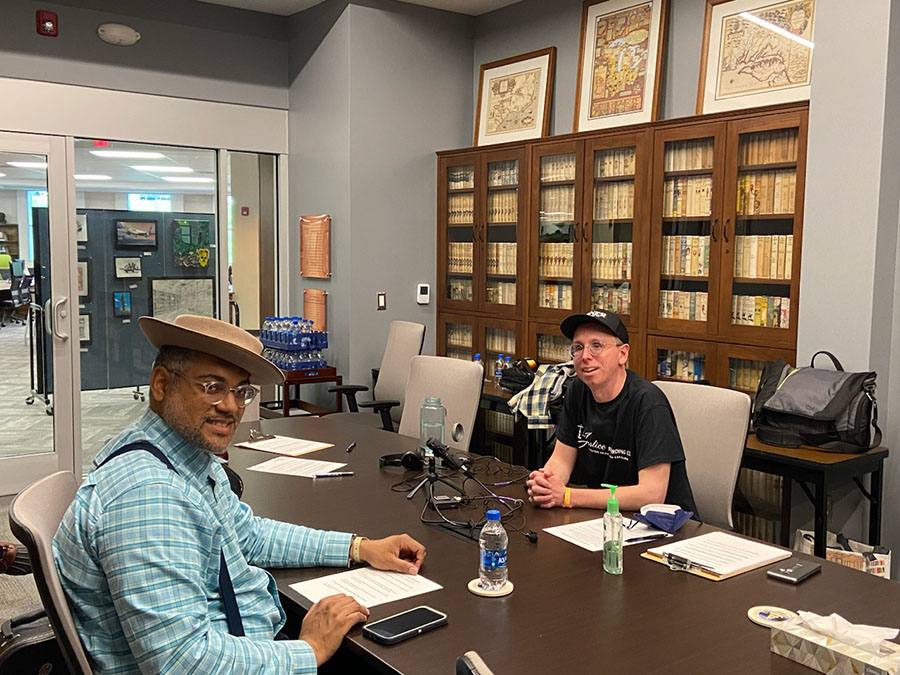
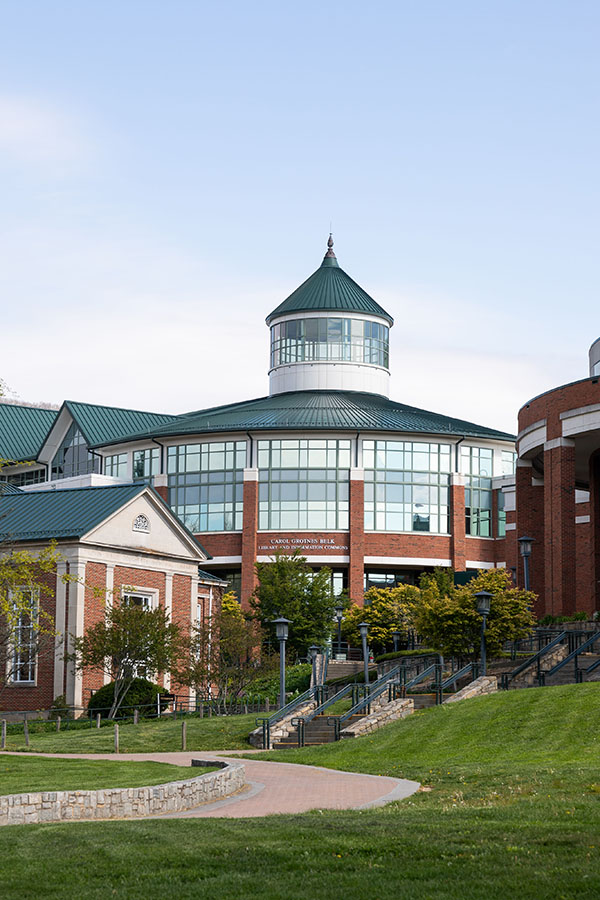
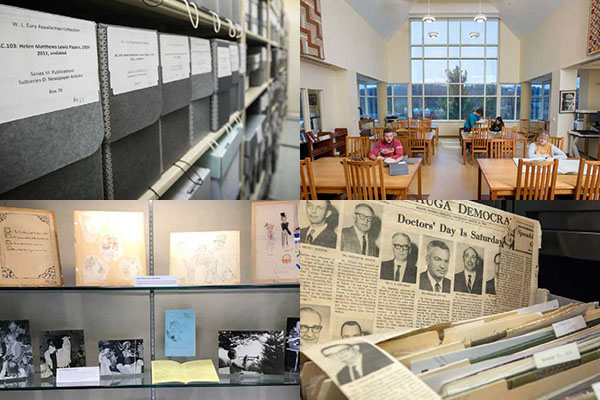
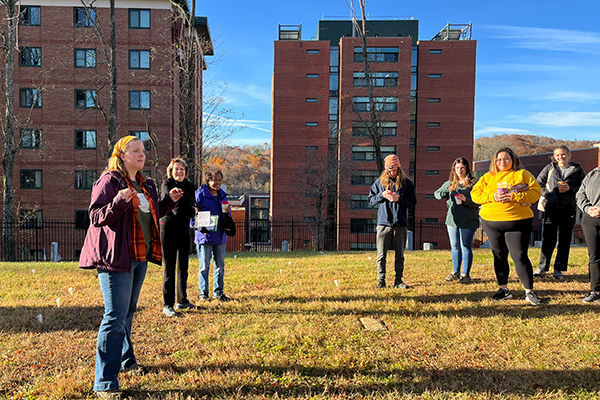
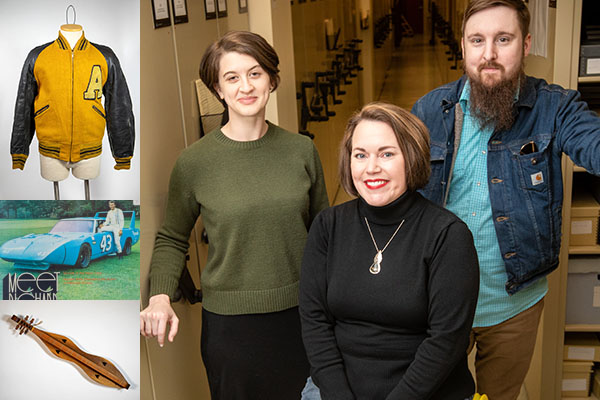



![How NCInnovation Is Rethinking Economic Development in North Carolina [faculty featured]](/_images/_posts/2026/02/rethinking-economic-development-600x400.jpg)







